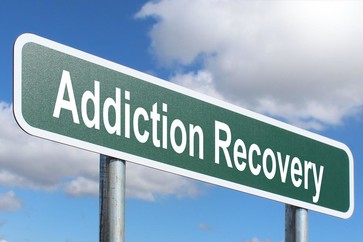The Shifting Definitions of Sobriety and Recovery

What does sobriety mean? It’s an interesting concept, and it’s getting a workout these days, as the definition of “being sober” has shifted over time. One only has to look at the charts on substance abuse to see that alcoholism is much less lethal than opioid use, and that a wide variety of other intoxicants now claim part of the drug use curve: cannabis, ketamine, psilocybin, etc.
When alcoholism was the dominant substance use disorder, sobriety meant abstinence, as in 100% withdrawal for the longest period possible. Alcoholics Anonymous shortened that period to one day at a time. When you relapse often enough from drug, alcohol or nicotine addiction, you realize that the slightest moment of weakness can be enough to cause a cascade of consequences. Sober means zero consumption.
But what about “wellness boosters,” as The New York Times calls them in a recent piece on the meaning of sobriety? What about smoking a little pot, or taking an edible to sleep better, or experimenting with magic mushrooms if you are a recovering alcoholic? Can you be sober and partake at the same time?
“It’s complicated” is probably the best answer. Most states have sobriety tests that allow for a certain amount of drinking before one is considered impaired. Alcoholics Anonymous does not shame those who relapse but offers to help them in the morning. Social welfare agencies will tolerate a fair amount of addiction as long as substance abusers can stay out of jail.
The Centers for Disease Control defines “excessive drinking” as four or five drinks on one occasion. That will put you over the legal limit to operate a motor vehicle in all jurisdictions. You can have two drinks a day and not be considered an excessive drinker under these guidelines. You are not considered to suffer from alcohol dependence, a condition that afflicts only 10.2% of excessive alcohol users, unless you “have an inability to control alcohol consumption.”
1 in 3 adults is an excessive drinker, and most of them binge drink, usually on multiple occasions. In contrast, about 1 in 30 adults is classified as alcohol dependent.
The meaning of sobriety turns out to be as nebulous as the meaning of recovery. Both are important goals and both definitions have been tempered by reality into more forgiving boundaries in recent years.
Written by Steve O’Keefe. First published February 13, 2024.
Sources:
“What Does Being Sober Mean Today? For Many, Not Full Abstinence,” The New York Times, February 4, 2024.
“Pain in the Nation: The Epidemics of Alcohol, Drug, and Suicide Deaths,” Trust for America’s Health and Well Being Trust, 2022.
“Re-configured pleasures: How young people feel good through abstaining or moderating their drinking,” International Journal of Drug Policy, March 2020.
“Most people who drink excessively are not alcohol dependent,” Centers for Disease Control, November 2014.
Image Copyright: zatletic.




